What’s Next
It was very, very hard to figure out my second book
Years ago, when I was finishing my first book, I got a solid piece of advice. Write your second book while waiting for the first to publish. A book often takes a year to go from final draft to bookshelf, and in that lag time, anxiety blossoms. Writing a second one fast, soon, now would be a way to surf the rocky down-time and assure productivity regardless of whatever came after publication, good or bad. Friends told me success could lock up a writer as quickly as failure, and I nodded, hoping that if I had to be struck by writer’s block, that would be the flavor I got.
Second books are a notoriously tricky business, much like second records or second films. There’s a reason we have the term sophomore slump. It’s easier to debut than to follow-up. As Elvis Costello once said, “You have twenty years to write your first album and six months to write your second.” I wasn’t on some punishing studio time line, but I still felt the crunch. “What are you working on now?” people asked me. “What’s next?”
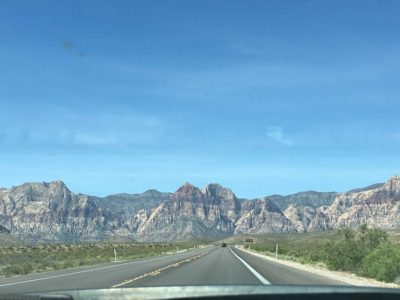
Nevada
I did have an idea for a second book. It was vague, a subject more than a narrative, but books often start in mist and fog. I wanted to write about female solo travel. I’d begun traveling on my own at 25, frustrated that a boyfriend had not arrived, and I thought travel would be a way to explore the complications of my own independence, a freedom I had that previous generations did not, although other things had been lost along the way. That October, I headed through the desert Southwest and into California for a two-month road trip. Hiking, camping, alien crash sites, etc. I decided not to post on social media for the duration, because I was scared of doing that thing — that thing where you burn off your best material on the Internet and feel tapped when you open a word document.
I hoped such discipline would help me write more — but instead, I wrote nothing at all. I felt bad for this belly flop of productivity. I had so much free time, hours and hours of swallowing quiet. I sat in a tent on the woodsy northern rim of the Grand Canyon, and I did not write. I sat at a picnic bench near the orange-pink hoodoos of Bryce Canyon, and I did not write. I sat on the foamy shoreline of the Pacific Ocean, tossing jagged seashells into the lapping water, and I did not write. It turns out you can NOT WRITE in many beautiful locales. I listened to true-crime podcasts. I took selfies I did not send. I made recordings of the seagulls and the swooshing tide so that I might capture this feeling, this place, almost as though — being unable to appreciate the moment in the moment — I could appreciate it somewhere else down the line.
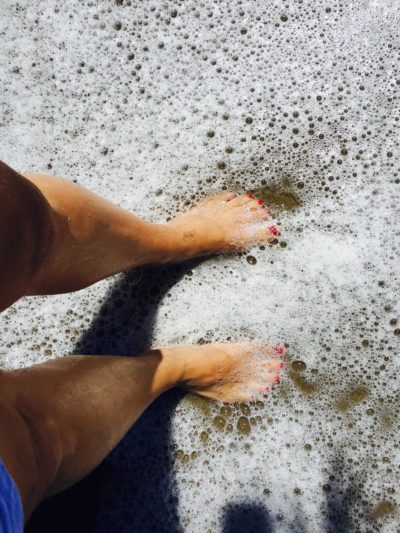
Los Angeles
The problem, or at least one of them, is that I had no idea where my life was headed. I was living in such uncertainty that I wasn’t sure what to say about anything. Would my book succeed, or prove a disappointment? Would I be loved, or scorned? My fate was dangling. Grief and loss are tremendous motivators. My misery has a very high word count. But I was neither miserable nor elated. I was just waiting. Wondering what’s next. I had recently turned 40, and my personal life felt dangling, too. I had never been married, never had children, despite always wanting both. How could I have lived four decades on the planet without these markers of an adult life? I thought maybe when the book came out, some mysterious man might appear at a book event, and — I don’t know. What’s next? I have often wished I wrote fiction, that my work was an act of imagination, of summoning — as opposed to an act of revisitation, trying to make sense of the past. Recently I mentioned this to a novelist, who gave me a funny look. What was her work, she said, but a revisitation of her past?
Anyway, I hated that road trip. And I felt guilty for hating the road trip, because it was kind of expensive and luxurious in a solitary single-person way, like the opposite of parenthood — all those empty afternoons, all those thick novels stacked in the trunk, the four-hour hikes, the nights spent in a roadside motel watching “Shark Tank” on basic cable. But it all felt like procrastination, an avoidance of real life. When I got back to Texas, friends asked how the trip went and I was like, “Ugh, I don’t want to talk about it.” Such a brat! But the mention of the trip brought up queasy feelings of creative failure, missed opportunity, and a stinging loneliness. I shelved the female solo travel book idea. Maybe later, but not now. I’d spent two months on the road with my own company, and mostly discovered I had nothing to say.
Blackout came out in summer 2015, and I was swept up in a wave of busy-ness that lasted for a while. It felt good, if no less anxiety-making. But people wanted to talk about my book, and so did I. My Google calendar filled with literary festivals, writing assignments, speaking engagements, and podcasts, so many podcasts. Half a year rocketed past. Around March, I posted on Facebook that I was heading to yet another book festival, and a novelist friend sent me a message gently suggesting it might be time to stop touring on that last book and get cracking on the second. The note was sent with love. She was worried I might get stuck, as she once had, and I said thank you and made a mental note that I later crumpled and threw in the trash. My paperback came out in summer 2016, and my Google calendar filled up again. I had always been the last one to leave a party, because A) parties are terrific and B) you never know when another party will come along again. What if this was the last party I ever got?
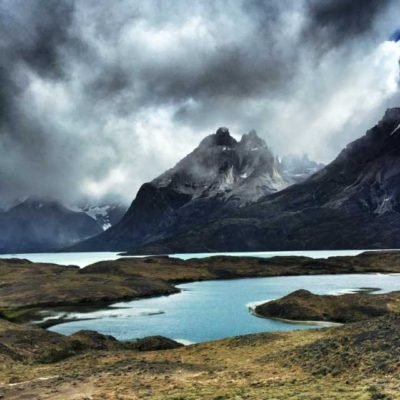
Patagonia
I had more ideas for a second book. Maybe I could write about modern dating, or women and sex, or American binge culture. I talked about these books, because talking about books is much, much easier than writing them, and in one case I wrote an entire proposal that I ended up pulling. Not good enough. I went out to California again; I wrote nothing again. A relationship I was hoping would develop turned out to not actually be a “relationship.” Everything was dissolving in my hands. I was exiting the life of a “successful author” and entering the life of an “unproductive freelance writer,” but I wasn’t sure what to do about it. I threw myself into a magazine piece that ended up getting killed when the editor quit. I threw myself into another magazine piece that fell apart a month into my research. These magazine pieces required dozens of hours of interviews and, in one case, a week-long trip to a college in Ohio that I paid for myself. My confidence was starting to founder. I tried my hand at a few internet “hot takes” only to find my takes were not that hot. This is a good start, the editor said, but I think we’ve missed our window. Or, This is a good start, but I think I’m more interested in x or y or z. I went from “What’s next?” to “Am I ever going to write again?” Twenty years in this business, but give me a string of bum luck, and I will start spiraling.
I kept most of this to myself. I kept to myself in general, which amplified the despair, since I had nowhere else to put it. I was traveling quite a bit during these years. Newfoundland, Iceland, Finland, Rwanda, but my world in between these dazzling locales was growing more grim. A gap was starting to appear between the life I presented online — itinerant, fortunate, filled with sustaining friendships and lucky-duck travel assignments — and the life I had away from the internet, which was solitary, sedentary, and consumed by artistic anxiety. I wasn’t lying about the good parts. I just didn’t know how to share the bad. Writing had been where I explored these vast middle grounds, but I wasn’t doing much of that, either. I was stopped-up and grumpy. The easiest way to communicate became not communicating at all.
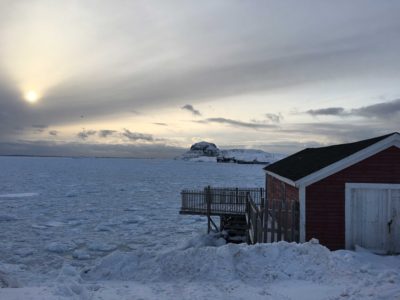
Newfoundland
The year 2017 will not be remembered by many for its joy. In addition to whatever cataplectic fit the country was enduring, I was in a serious funk. I had an epic case of creative blue balls. Between the spring of 2017 and the winter of 2018, I worked on no less than six book proposals. (Unlike novelists, who usually sell completed manuscripts, nonfiction writers sell a book based on a proposal. For me, that generally amounts to one completed chapter and an outline of the rest of the book.) I loved all of those books. I named each one. I imagined their covers; I crafted their dedication pages. My beloved and insightful agent spoke with me for hours on the phone about each of them. She believed in them, too, and then listened — two weeks or two months later — as I explained why this one wasn’t going to pan out. Sorry, maybe next time, though I was privately starting to wonder if there would ever BE a next time. Writing one book wouldn’t be a terrible thing. One book is more than most people ever write. I threw out lines for teaching gigs. I considered getting a nursing license. I contemplated the Peace Corp.
Many have written about the psychic ravages of writers block, but allow me to add one key gripe: It doesn’t pay. The book you work on for months only to prudently shelve: No partial fee for that. The paragraphs you spend days and days embroidering with the perfect metaphor only to scrap the entire project: No hourly wage. You get jack, you get zip, you get nada, and in addition to whatever mental and emotional turbulence this might have caused, there was a far more pressing concern, which is that not selling anything you write is VERY BAD FOR BUSINESS. I began fretting about money. I started using credit cards I had long ago paid off. My dad suggested I drive for Uber. This bothered the hell out of me, and then later I was like: Hmm, not such a bad idea.
Writing is not an easy job. People think that’s because the act of writing itself is hard, and it can be, but please understand how agonizing it is to NOT WRITE. It took a great deal of my energy to not write. It became a consuming obsession, an all-day task. I was thinking about NOT WRITING all the time.
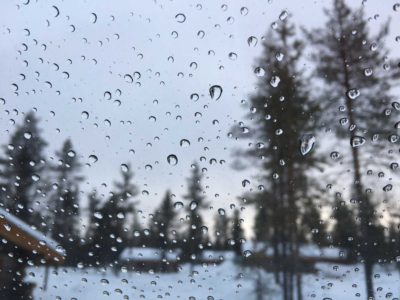
Finland
Last October, I pulled myself out of the ditch, and I began working on the travel book again. I thought maybe I’d cracked the code. I worked on the book for long stretches of the day, seven days a week, 12-hour jags that were more like fugue states, and by January, I had 40,000 words. Half a book. I was giddy, and tired, and bloated with junk food. And I thought to myself: If this one doesn’t work, I’m going to stop trying for a while. But guess what happened next? IT DIDN’T WORK. And it was very hard to articulate why. The best reasons I had were vague, like the fizzing end to a relationship: Something was missing, it wasn’t quite there. A lot of “almost, but not quite.” I really thought I’d quit at this point, but I did not. Because by this point, real life had intruded, dragging along its emotional highs and lows — and I wanted to write about that again.
Two weeks ago, something happened that will change the trajectory of the next year of my life. I sold a book. I actually did! This is five years after selling my first book, four years after I began chastising myself for not writing my second, and a good two years later than I thought I would be selling the damn thing. The book will be published by the Dial Press, part of Random House, and I’m not going to say much more about it now except to tell you that it is not about travel, and it is not about modern dating [Ed note: The book totally became about modern dating], and it is not about American binge culture, although I can see parts of those books nested inside it. Passages that I wrote for one book ended up in the outline for this one, and ideas I was wrestling with in a much earlier context re-emerged in a much later one. I will spend the next year writing this book. It’s kind of funny — how long and hard I fought just to get to the place where it’s like, “OK, now you can begin.”
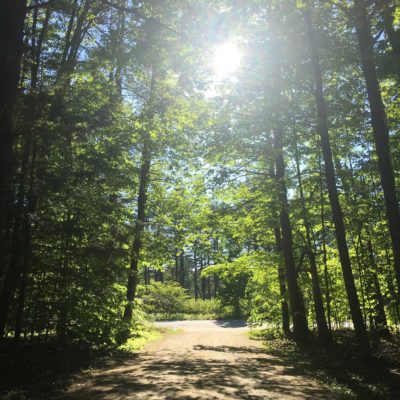
New Hampshire
So here I am at the beginning again. Starting again, as life continually asks us to do. I am relieved, and nervous, and grateful. I subscribe to the email newsletter Brain Pickings, which arrives on slow-moving Sunday mornings, a bit like literary sermons. Around the time I sold my book, I opened up the newsletter to find this from Rilke’s Letters to a Young Poet.
Being an artist means, not reckoning and counting, but ripening like the tree which does not force its sap and stands confident in the storms of spring without the fear that after them may come no summer. It does come. But it comes only to the patient, who are there as though eternity lay before them, so unconcernedly still and wide. I learn it daily, learn it with pain to which I am grateful: patience is everything!
I never did learn patience for the writing life. I had the drive, I had the ambition, I had the strong verbs and the rotary wheel of metaphors and the aching sensitivity and the drinking problem and the weird “look at me but don’t look at me” exhibitionism. But I never had patience. And I spent years at online magazines where patience was a liability, and my impatience was rewarded, and so now I am learning the hard way, which may be the only way we learn, the only way we overturn our comfortable habits of thought and behavior. Change is hard. Otherwise it probably wouldn’t be change.
I wonder if a more seasoned writer, a more disciplined journalist, could have made better use of this long and lonely valley from which I am only now emerging. Surely the answer is yes. And yet, when I look back at the past three years, I see someone trying her best. Reading, writing, traveling, studying the landscapes and the people, arguing with herself and others. And if I zoom out the lens and look at myself objectively, I think the answer is a lot less thrashing and dramatic than “I can’t write anymore” or “I am such a lazy piece or shit” or — give me a break, kid — “my career is over.” I think the answer is more like this: I was not ready.
I am now.
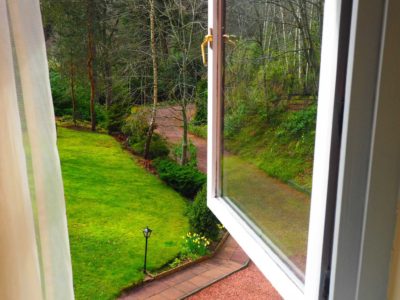
Scotland
